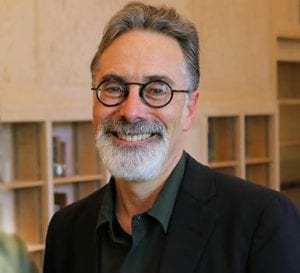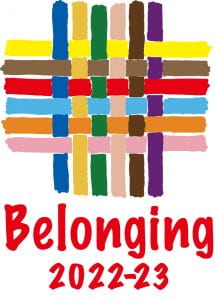OHC Director’s report by Paul Peppis

As we at the Oregon Humanities Center (OHC) gear up for a new academic year, at a time of continuing upheaval, uncertainty, and challenge, I am once more reminded of the unique capacities of the humanities and the arts to help us understand, navigate, and redress the difficult realities facing us. The penetrating insights of philosophy, the clarifying perspectives of history, the inspiring narratives of literature, and the illuminating visions of the creative arts are among the many rich and potent capacities the humanities provide to respond to such realities.
 Animated by our conviction in the humanities’ capacities to clarify and redress even seemingly insurmountable challenges, we have selected for the OHC’s annual named lecture series the theme of “Belonging.” We believe the topic of belonging warrants focused attention now because so much of what we hear, read, and experience aims to divide, exclude, and alienate us from each other. But belonging is a universal human need. To live good lives, we all require cohesive bonds and connections with people and places. Addressing the topic of belonging at this fraught moment also requires expanding our understanding of what belonging means, of the mechanisms of exclusion and the barriers to belonging, of the created and contested spaces of belonging, and of how ideas of belonging can and have paradoxically engendered exclusion and hatred. So much of our history, so many of our social structures have been built on scaffolds that pre-determine who belongs, and who has value and power. These systems continue to produce unjust and inequitable outcomes for people and the planet.
Animated by our conviction in the humanities’ capacities to clarify and redress even seemingly insurmountable challenges, we have selected for the OHC’s annual named lecture series the theme of “Belonging.” We believe the topic of belonging warrants focused attention now because so much of what we hear, read, and experience aims to divide, exclude, and alienate us from each other. But belonging is a universal human need. To live good lives, we all require cohesive bonds and connections with people and places. Addressing the topic of belonging at this fraught moment also requires expanding our understanding of what belonging means, of the mechanisms of exclusion and the barriers to belonging, of the created and contested spaces of belonging, and of how ideas of belonging can and have paradoxically engendered exclusion and hatred. So much of our history, so many of our social structures have been built on scaffolds that pre-determine who belongs, and who has value and power. These systems continue to produce unjust and inequitable outcomes for people and the planet.
The lectures in our series will consider belonging through the lenses of Indigenous sovereignty, racial justice, climate destabilization, immigration, and disability justice. Our speakers will apply their diverse perspectives, experiences, and knowledge to our theme in hopes of fostering productive conversations about what it means to belong, who decides who belongs, and how to create more inclusive systems for everyone.
In these pages, you can learn more about our first Belonging lecture and several of the other exciting humanities and arts events sponsored or co-sponsored by the OHC on campus this fall. Our calendar gives key details about these and many other upcoming lectures, exhibits, performances, and symposia, including the OHC’s Work-in-Progress talks (WIPs) by our resident research fellows, and Book-in-Print talks (BIPs) by UO scholars on their recently published books supported by the OHC. We look forward to joining our friends and supporters in person for these events.
Before closing, I want to quote briefly from an email I recently received from Professor Jeffrey McCarthy, a close friend, colleague, and UO alumnus, who now directs the Graduate Program in Environmental Humanities at the University of Utah. As the OHC begins a new year, Professor McCarthy’s words offer heartening reminders of the importance of what we do: “I work closely with our Tanner Humanities Center and conclude that humanities centers are the center of actual university life in America. The connection with community, the genuine interdisciplinarity, the honest support for research… [the OHC is] doing the humanities work that needs to be done.”
Encouraged by these words, I offer once again my heartfelt thanks and appreciation for all who help the OHC carry out its urgent mission to promote and strengthen the humanities and humanities research: our staff, Faculty Advisory Board, external Board of Visitors, and all those fellow devotees of the humanities. We couldn’t do it without you!